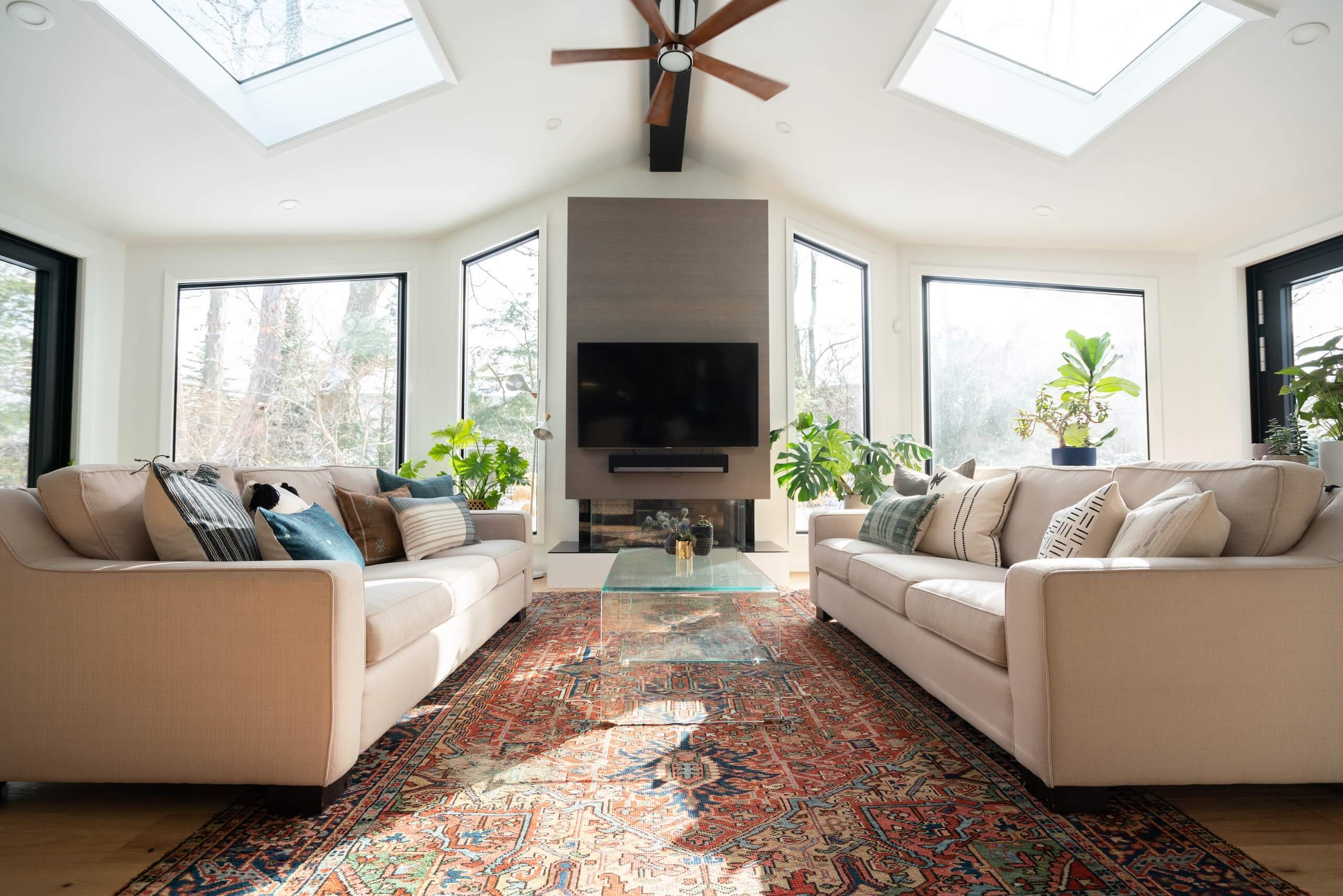Homeowners often choose carpet flooring because it is comfortable and aesthetically pleasing, with various colors and patterns. However, homeowners should consider the relationship between carpet and indoor air quality before installation.
When choosing flooring, homeowners have the opportunity to improve or worsen indoor air quality.
What do we mean by this? Well, certain types of flooring hold onto air pollutants (e.g., dust, dirt and debris) more than others.
Additionally, they may emit hazardous chemicals when installed. This negatively affects allergy and asthma sufferers, primarily.
However, all occupants are subject to adverse health effects due to these phenomena. On the other hand, certain types of flooring ward off mold and mildew from water damage.
Unfortunately, carpet falls into the former category. And that is why we ask homeowners to heed our warning.
How Carpets Affect Indoor Air Quality
As aforementioned, carpet and indoor air quality do not mix. Air pollutants such as dust, dust mites, dander, mold spores, mildew, and lead are easily trapped in the fibers of carpets.
Moreover, air pollutants in their gaseous state may cling to particles, which are then trapped by the carpet.
Walking, vacuuming, crawling, and playing are all activities that allow the air pollutants trapped in the carpet to become airborne once more.
Children are particularly at risk because they crawl and play on the floor for extended periods. Additionally, they often place their fingers in the mouth, nose, eyes and ears.
It is tough to clean the carpet, let alone remove all air pollutants. Therefore, the cycle of trapping and releasing air pollutants is an endless one. Thus, indoor air quality is constantly degraded. This has negative implications for the health of occupants.
 More: Carpets harbor air pollutants that contribute to poor indoor air quality, which may eventually result in Sick Building Syndrome. Check out this article to learn more →
More: Carpets harbor air pollutants that contribute to poor indoor air quality, which may eventually result in Sick Building Syndrome. Check out this article to learn more →Is Carpet Bad for Allergies?
Considering the aforementioned, yes, carpet is bad for allergies (and asthma). Some of the most common allergens (e.g., dust and dust mites) are frequently found in carpet. This is problematic considering more than 50 million people in the United States suffer from allergies. Allergies are the sixth leading cause of chronic illness.
When exposed to allergens, occupants may experience the following symptoms:
- Skin inflammation
- Hives
- Rash
- Nasal congestion
- Sneezing
- Itchy or watery eyes
Can Carpets Make You Sick?
Allergies are one thing, becoming physically ill is another. When carpets and carpet padding are manufactured, the process often involves synthetic fibers (e.g., nylon).
These materials, made of non-renewable petroleum, emit VOCs. Additionally, the adhesives used to install carpets and carpet padding emit VOCs.
Exposure to VOCs may cause one or more of the following symptoms:
- Conjunctival irritation
- Eye, nose and throat irritation
- Headache, dizziness and nausea
- Allergic skin reaction
- Dyspnea
- Emesis
- Epistaxis
- Fatigue
Long-term health effects due to exposure to VOCs may include one or more of the follow symptoms:
- Prolonged eye, nose and throat irritation
- Prolonged headache, nausea and loss of coordination
- Damage to the liver, kidney and central nervous system
- Cancer (animals and humans)
The level of exposure and the length of time occupants are exposed play a central role in the resulting health effects.
 More: Carpets aren’t the only common household product that emit VOCs, negatively impacting occupant health. Check out this article to learn more →
More: Carpets aren’t the only common household product that emit VOCs, negatively impacting occupant health. Check out this article to learn more →What Flooring is Best for Air Quality?
Whether you choose hardwood, vinyl, laminate or tile flooring there will be pros and cons. Choosing flooring that is best for air quality is a matter of finding more pros than cons. However, as far as trapping air pollutants and allergens, non-carpet flooring will always outshine carpet flooring. Therefore, you won’t veer too far off track no matter what you choose. Let’s look at the pros and cons of the aforementioned types of flooring.
Hardwood
| Pros -Maintenance is easy -Aesthetically pleasing -Adds value to the home | Cons -Prone to water damage -Costly -Not soundproof |
Vinyl
| Pros -Durable and comfortable -Various colors and patterns | Cons -Prone to water damage -Color fades |
Laminate
| Pros -Durable and comfortable -Various colors and patterns | Cons -Not waterproof -Off-gassing |
Tile
| Pros -Maintenance is easy -Water-resistant | Cons -Uncomfortable -Difficult to install |
It’s important to note that bathrooms, laundry rooms, kitchens, basements and entryways (e.g., the front door) should not be carpeted. Why? Because these areas collect moisture, more so than other areas in the home. As we all know, moisture leads to mold and mildew over time.
If you must install carpet, allow it to air out for 72 hours before installation.
Some adhesives emit minimal concentrations of VOCs. Those are the ones you want to use for installation! Once the adhesives are applied, allow it to air for another 72 hours. And, if possible, ensure the space is unoccupied during this process. Once the carpet and adhesives have aired out, in a well-ventilated space, occupants may return.
Healthy Home Flooring
IAQ.Works is in the business of indoor air quality, not flooring. Therefore, we can only recommend flooring based on how it impacts indoor air quality. As aforementioned, all non-carpet flooring is an excellent choice because they do not trap air pollutants and allergens.
However, hardwood, vinyl and laminate contribute to off-gassing at one point or another (e.g., installation or cleaning). Tile does not. This is just one factor to consider when choosing non-carpet flooring.



